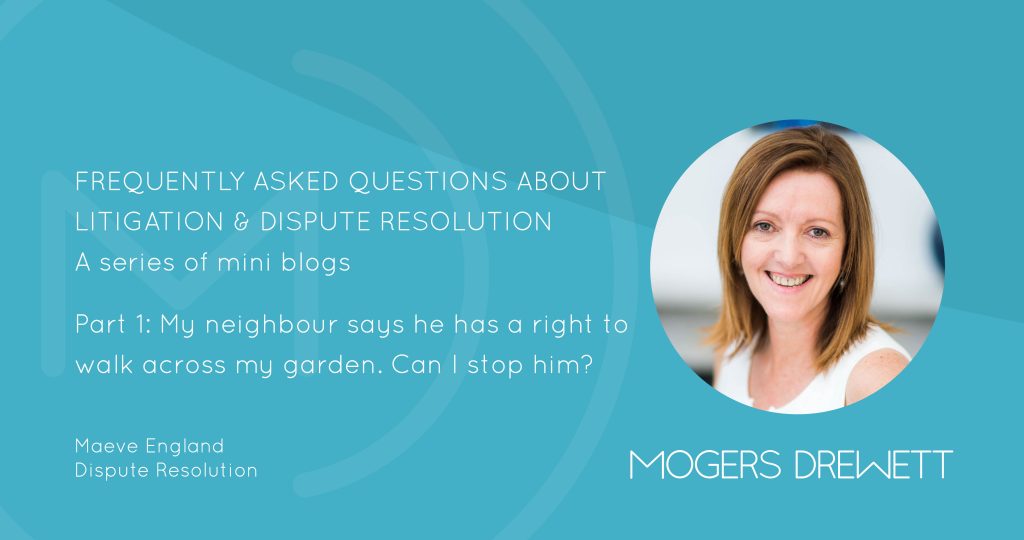FAQs About Litigation and Dispute Resolution: My neighbour says he has a right to walk across my garden. Can I stop him?

In the first mini blog in this series of FAQs about Litigation and Dispute Resolution, Maeve England, Partner in our Bath office, explores the complexity of rights of way.
Rights of way (a type of “easement”) are sometimes set out in writing on the deeds of a property or at the land registry. In such cases, the matter can be straightforward. If there is an “express” right of way, this will remain attached to the land. So if your neighbour sells the property, the right stays with the property. Rights are sometimes “for all purposes” in which case your neighbour and any visitors to their property are entitled to use it with or without vehicles. The right is said to be enjoyed by the property so it cannot be used to access other land.
Very often, however, a right of way will have come into existence over a period of time. If this has happened, then the right will be a legal right and have the same status as a written right of way, but of course evidence of the right would be required if it were challenged.
Similarly, rights can come into existence when a large property is split into small separate parcels of land. Those rights can arise by law, by necessity or by agreement.
Just to confuse matters, sometimes a “right” to cross your land is time limited, in which case it may not be an easement, but instead a “determinable fee simple”. This means that the right granted determines automatically on the occurrence of a defined event.
So, even though there may be nothing in the deeds, your neighbour’s property may enjoy a right to pass over your land.
At Mogers Drewett we have a team of solicitors specialising in all different types of disputes, including land disputes such as this. If you have any questions or want to discuss your situation please contact us on 0800 533 5349.
